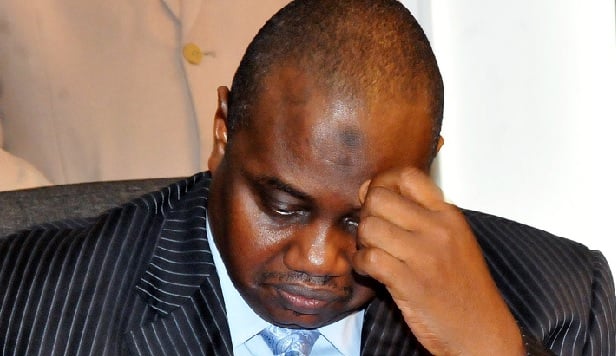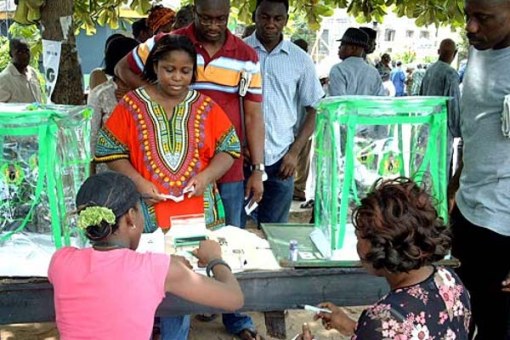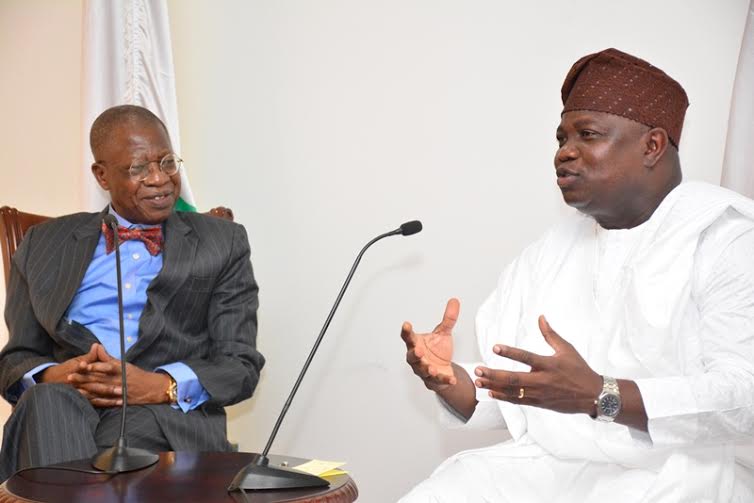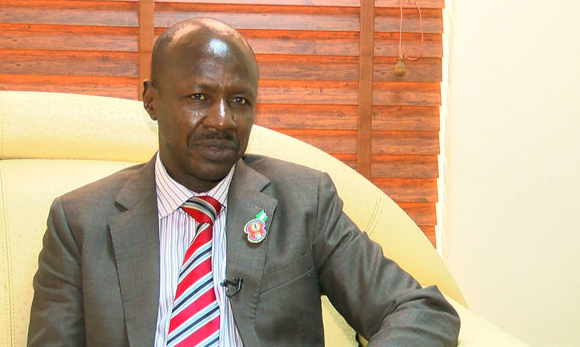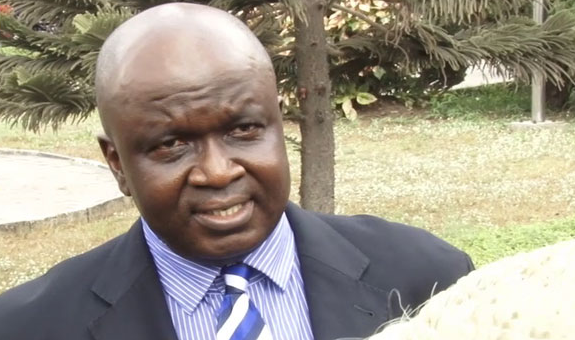The senate may issue a warrant for the arrest Ibrahim Lamorde, former chairman of the Economic and Financial Crimes Commission (EFCC), owing to his failure to honour its invitation.
Lamorde is being investigated by the senate committee on ethics, privileges and public petitions over an alleged diversion of N1trn recovered by the commission under him.
Considering the report of the committee on Thursday, the senate directed its chairman, Samuel Anyanwu, a senator from Imo east, to request the warrant from the senate president.
Earlier, the committee had asked the senate to adopt its resolution for the arrest of Lamorde, stating that he had disregarded three of its summons.
Advertisement
“The committee, having waited in vain for the appearance of Mr Ibrahim Larmode since 24 November, 2015, was forced to conclude that he wants to evade investigation,” Anyanwu said while presenting the report of the committee.
“The only way to get the former EFCC chairman to appear before the committee is to invoke the powers of the senate in section 89 (1C and D) of the 1999 constitution.
“The committee is convinced that unless this line of action is taken, the national assembly might be drawn into consequential disrepute in the future.”
Advertisement
Thereafter, he recommended that a warrant be issued for the arrest of the former EFCC chairman.
However, raising a point of order, Ike Ekweremadu, deputy senate president, explained that the issuing of a warrant of arrest was not subject to the resolution of the entire senate, as section 89 of the 1999 constitution gave the committee power to request the arrest.
He added that section 89(4) also gave the committee the power to ensure that the person being arrested is made to pay the cost of arresting him.
“The committee can impose such fines that may be prescribed for any such failure and it shall be recoverable in the same manner as a fine imposed by a court of law,” he said.
Advertisement
“The warrant issued under this section may be served or executed by any member of the Nigeria police force or by any person authorised by the president of the senate or the speaker of the house of representatives as the case may be.
“So what is required here is for the committee to issue a warrant of arrest and then the president of the senate will direct the police to effect the arrest.
“It is not the business of the senate during the plenary to do so, otherwise we will be offending this part of the constitution. So, the issue of warrant of arrest is not something that we will take a resolution on, the resolution has already been taken by the committee.
“If there is any consequential order that needs to be made, the committee can deal with that and direct it through the office of the president of the senate who will direct the Police to effect the warrant.”
Advertisement
Senate President Bukola Saraki upheld Ekweremadu’s argument, stating that the matter should not have come to plenary in the first place.
“The issue has been well spelt out by the DSP, based on the constitution this matter does not need to come to us at plenary. It should be left at the level of the committee and in accordance with section 89 of the constitution, so I will sustain the point of order of the DSP,” he said.
Advertisement
Add a comment

